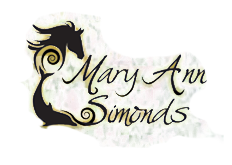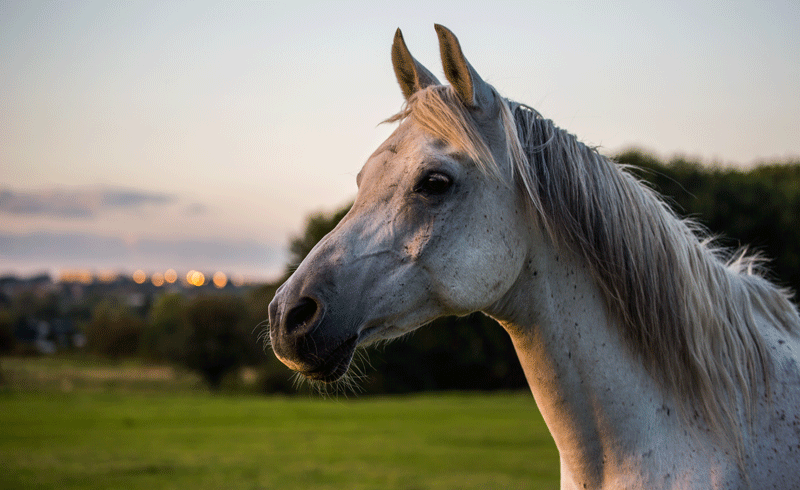By Mary Ann Simonds, B.S. M.A.
Originally published in Equine Wellness Magazine. This article has been updated.
July 24, 2013
Although you can’t prevent all stress in your horse’s life, by understanding his priorities and attempting to meet them, you can reduce and help manage it.
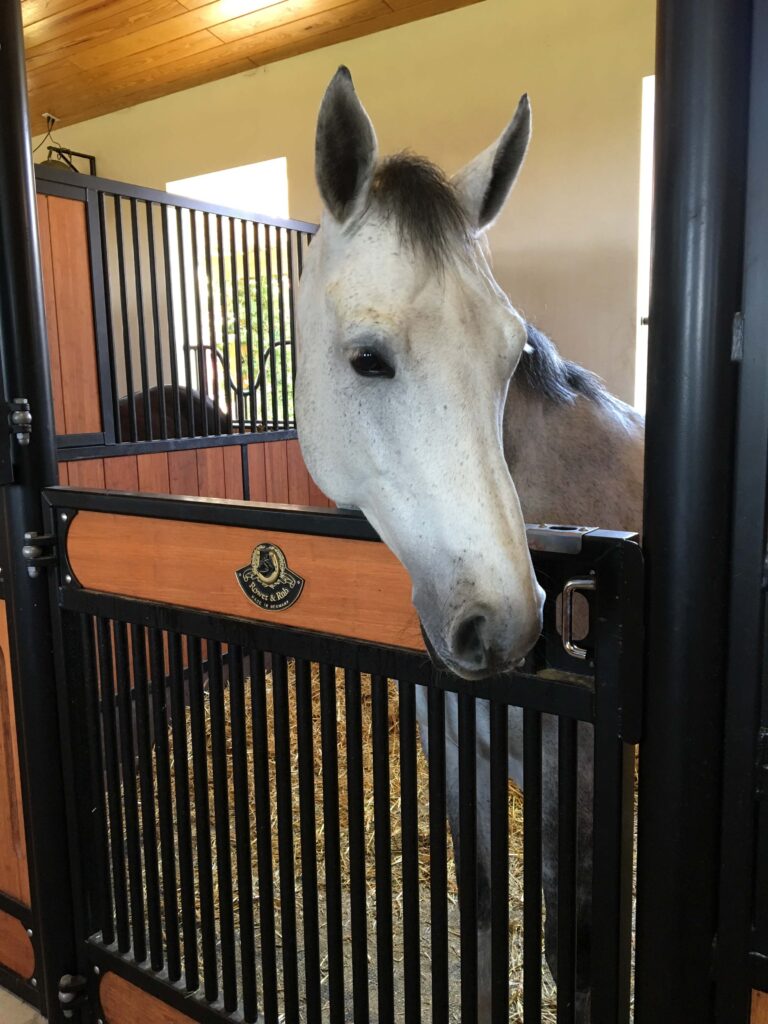
People often think of stress as a human condition; the product of our harried lives. But in reality, stress, which contributes to both emotional and physical problems, is very common in our equine partner’s life, too. Understanding the nature of stress, what causes it, how horses cope, and what we can do to help is an integral part of whole horse care.
What is stress?
All life is stressed to some degree. A little stress helps creatures and other life forms adapt, while too much of it causes species “distress”. Stress by one definition is the “body’s response to anything (stressors) that it considers as threatening” and it can be perceived on both physical and mental/emotional levels.
Evolution has adapted all mammals to react quickly to dangerous threats which is one reason why both humans and horses are still here today. The high measure of energy in the muscles that comes as a result of stress increases the body’s ability to physically react, but at the same time lowers the ability to think. This reaction, often referred to as the “fight or flight” mechanism, has served both horse and human well throughout history, in fact, our very survivals depended on it.
Today, humans and horses face more mental and emotional stress than threats to our lives. But humans have the ability to reason and understand what causes our anxiety, while horses do not. They are still operating as they did thousands of years ago, and although horses have adapted well to domestication, their basic biology and ecology have not changed. Their bodies continue to manifest the fight or flight reactions, and these may show up as behaviorial issues that you can see or internal problems that you may not even associate with stress at first.
Recognize the signs of stress in your horse’s life
Behaviorally stress can show up through gestures like head tossing, weaving, cribbing, or pawing from worry, boredom, or physical discomfort. Like humans, horses can store mental anxiety in their muscles, especially over the pole area, neck and shoulders. This “armor” can cause discomfort and soreness.
The above signs are easy to recognize, but what about the more subtle ones? Many domestic horses have the “I-want-to- please-syndrome” and will behave to fit in even at the possible loss of their own identity and comfort. Often they are labeled as “dead broke”, but instead can be a time bomb waiting to happen. They are horses who:
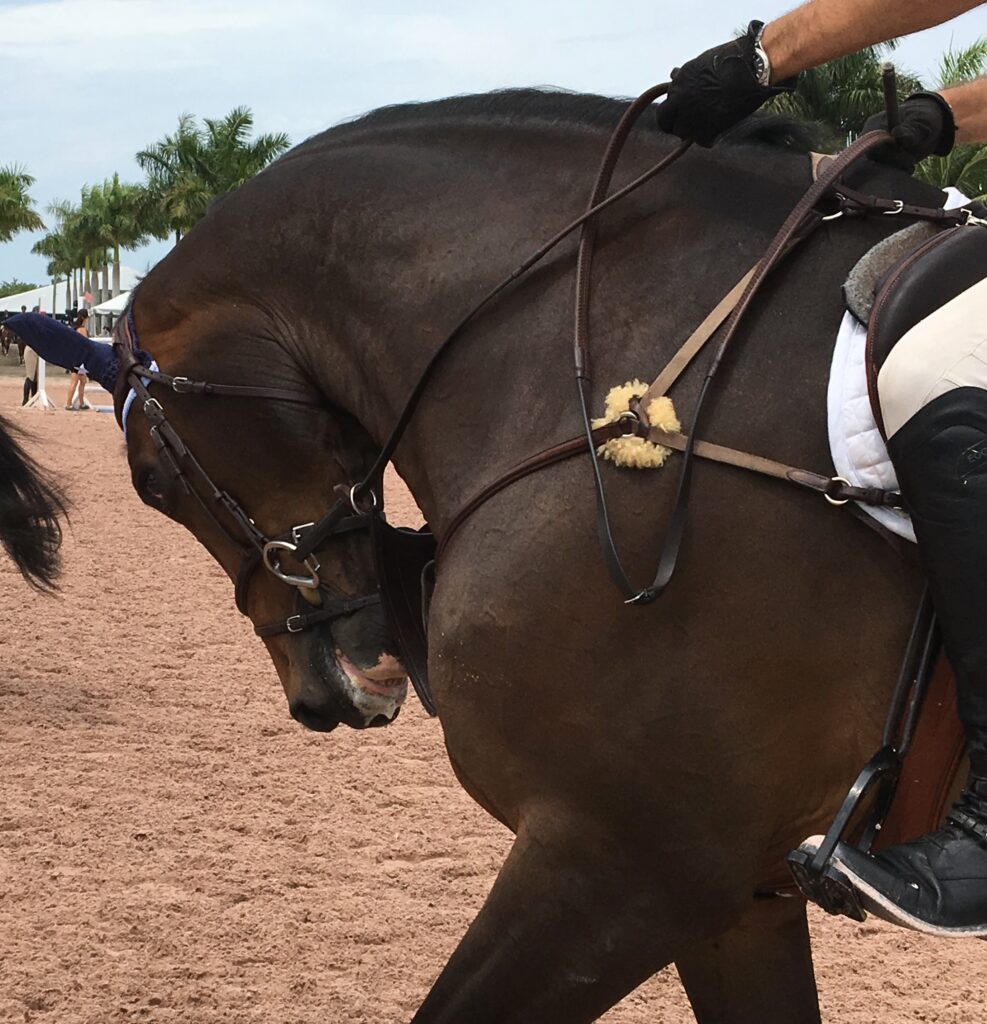
- Have shut down or are never calm.
- Will not make eye contact with you and have tight lips.
- Are unfriendly and have no friends.
These horses need to communicate – talk and touch your horse daily. Ask how he or she feels today. As social mammals horses need to feel safe and belong.
Internal conditions due to stress are harder to spot. It can affect the sympathetic nervous system, which stimulates involuntary action of the intestines, glands and heart and can show up as diarrhea or colic if the stress is high.
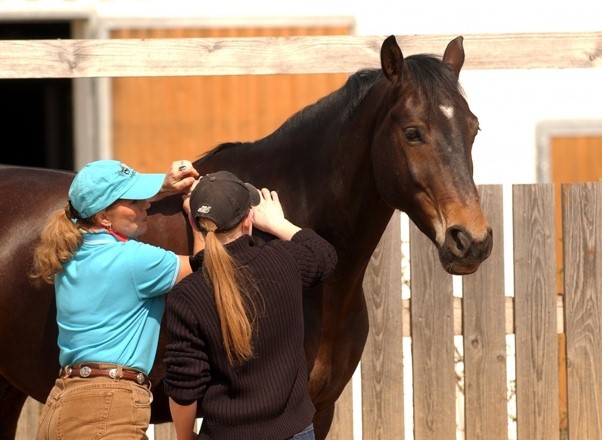
It can also affect the neuroendocrine system by increasing energy flow (to allow the body to move quickly if necessary), which uses stored up fats, proteins and carbohydrates. This is why horses who worry a lot are “hard keepers” or often have ulcers and tense muscles.
How horses perceive stress depends upon the horse’s temperament, experiences, activities, diet, lifestyle and environment.
Temperament and personality matter
Horses release or hold stress depending on their personalities. “Externalizers” release stress through bucking, running, kicking, biting and other actions. “Internalizers” hold stress and often build up digestive and foot problems as well as pain caused from tight muscles.
In a herd, sensitive horses get “credit” and are usually honored because their skill protects the others from danger. Yet this same ability is looked down upon by humans and these horses are often disciplined for their over sensitivity or keen sensory awareness rather than rewarded. This misunderstanding can cause worry, fear and even anger in some horses.
Environment plays a major role in stress
From nature’s perspective, horses are designed to live in free roaming social groups, eating all day long. The safety of the herd allows horses to eat and sleep without much worry, as they know that at least one or more horses in the group will react to danger if they are not paying attention. Living in a herd allows natural rhythms for eating, socializing and resting. Once leadership is established through spatial awareness and respect, the herd feels at peace and safe, knowing they are protected by the horses who can command the biggest spaces – the most aware and intelligent horses.
Today, most horses live in small defined spaces without close friends, the safety of a herd or the ability to run from danger. From the human perspective, we believe our horses have much more security than those in a wild herd. But in reality, though we have removed the physical and mental stress of being attacked by wolves or mountain lions, many horses feel even more stress from the psychological effects of separation and never belonging to a herd.
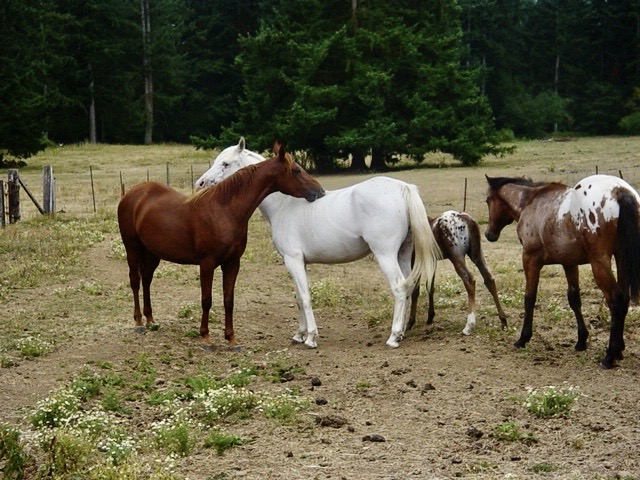
Eight most important things to a horse
In committing to care for our equine partners, we take the role of both friend and leader, promising safety and comfort in exchange for loyalty and love. We can’t always prevent stress, but we can reduce some stressors and help our horses cope better. To do that, you must understand his instinctual and biological needs.
- Social bonds – Having friends is stronger than any other instinct in the horse. The need to belong to a herd or at least have friends for safety and comfort is paramount. If you don’t have another horse, provide a social mammal such as a goat, dog or cat for a friend.
- Safety – Horses want to feel safe. As a prey species they react to many stimuli that humans are unaware of or do not sense as they do. Horses need “safe space” and, contrary to what many people think, a stall is not always considered a safe place to a horse. In nature, the herd and open spaces provide safety which is why turnout is best.
- Food/water – Horses eat a variety of plants, including grasses, herbs and shrubs, free-choice in their natural habitat. Feed a well balanced diet including 24/7 grass hay or free grazing, and provide nutritional mineral/vitamin supplements if needed, preferably in natural source form.
- Comfort/nurture – Horses need to regularly re-establish social bonds with friends through touch, grooming and other nurturing behaviors. People can provide this for horses by massaging and grooming where the horse “asks” for it.
- Leadership – Horses want to follow a leader. In their natural lives, leadership is determined by space domination and respect. When you are interacting with your equine partner, you need to be a competent leader. This is accomplished through understanding horse behavior, and being fair and consistent. Be someone your horse can trust with his life. Hint The leaders have the biggest personal bubble.
- Natural stimuli – Horses need sunshine and a large enough space to be horses — running, rolling and bucking. They also need to feel and hear the wind blowing, smell various scents, listen to birds and watch interesting activities. Try to provide them with a sensory-rich environment.
- Horse activities and play – Allow your horse to meet other horses and animals, smell manure and engage in as many “horse” activities that you safely can allow. Plan play time for you and your horse. Prevent boredom by providing varied toys and smells.
- Exercise – Horses are designed by nature to walk at least ten miles a day and need movement to stay healthy and feel good. Provide regular but varied exercise. Mix up your activities using a combination of ring work, trail riding, and working cattle, for example. This stimulates your horse’s body and mind.
Although you can’t prevent all stress in your horse’s life, by understanding his priorities and attempting to meet them, you can reduce and help manage the stress. While you’re at it, remember to balance your own stress level. This will keep your horse from picking up your thoughts and feelings and reflecting them back to you through behavioral and physical problems. Keeping stress to a minimum is a win-win situation for everyone.
